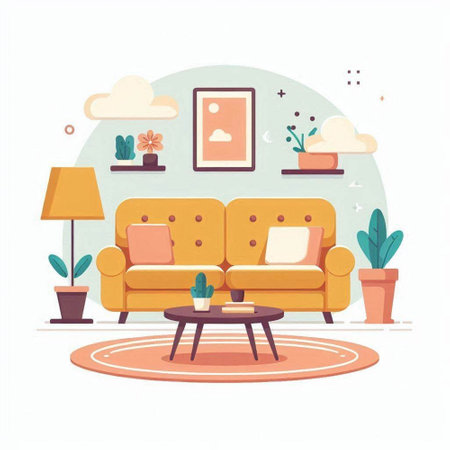Introduction to the British Institute of Interior Design (BIID)
The British Institute of Interior Design (BIID) stands as the foremost professional organisation for interior designers in the United Kingdom. Established to champion the highest standards within the industry, BIID has a rich history dating back to its formation in 1965. Over the decades, it has grown not only in membership but also in influence, shaping both national and international conversations about best practice in interior design. Recognised for its dedication to professionalism and continuous development, the BIID is unique as the only professional institute for interior designers in the UK to be granted Institute status by the Secretary of State. Today, it acts as a beacon for those seeking to uphold integrity, expertise, and innovation within this ever-evolving sector. As an authoritative voice, BIID’s commitment extends beyond its members—setting benchmarks that resonate throughout the wider design community and affirming its position at the heart of the profession.
2. Professional Standards and Code of Conduct
The British Institute of Interior Design (BIID) plays a pivotal role in raising the bar for professionalism and ethical conduct across the UKs interior design sector. As the foremost professional body for interior designers in Britain, the BIID establishes rigorous benchmarks that define what it means to practise interior design both ethically and competently. The Institute’s Code of Conduct is not merely a set of guidelines; it is a binding commitment for all members, ensuring that every BIID-accredited designer operates with integrity, transparency, and accountability.
Setting Benchmarks for the Industry
BIID’s standards are meticulously crafted to reflect the complexities and expectations of contemporary practice within the UK. These standards are regularly reviewed and updated to remain relevant to evolving legislation, sustainability concerns, and client needs. By setting these benchmarks, the BIID ensures a consistent level of professionalism among its members, distinguishing them from non-affiliated practitioners.
Key Areas of Professional Standards
| Standard Area | Description |
|---|---|
| Ethical Practice | Upholding honesty, fairness, and respect in all business dealings. |
| Competence | Maintaining up-to-date knowledge of technical skills and regulations. |
| Client Care | Ensuring clear communication and prioritising client interests at all stages. |
| Sustainability | Promoting environmentally responsible design solutions wherever possible. |
Impact on Professional Development
The BIID’s code and standards provide a robust framework for ongoing professional development. Members are required to demonstrate continuous learning and adherence to best practices. This not only enhances individual careers but also elevates the reputation of the British interior design industry as a whole. Ultimately, the BIIDs commitment to professional standards instils confidence in clients, fosters trust within the industry, and sets a clear path for personal growth among practitioners.

3. Accreditation and Membership Pathways
The British Institute of Interior Design (BIID) offers a clearly structured membership pathway designed to support interior designers at every stage of their professional journey. Membership categories range from Student and Associate levels to the highly regarded Registered Interior Designer status, each with its own set of criteria and benefits. Achieving BIID accreditation is not just a mark of commitment to industry standards, but also an indication of a designer’s dedication to continued learning, ethical practice, and professional excellence within the UK context.
The process begins with an application that requires evidence of relevant qualifications and experience. Prospective members must demonstrate both technical competence and a sound understanding of the professional responsibilities expected within the British design sector. For those seeking Registered Interior Designer status, the BIID mandates completion of a Professional Pathway: a rigorous assessment that includes portfolio review, interviews, and references. This ensures all members are equipped to uphold the Institute’s values and contribute positively to the profession.
Being a member of the BIID brings more than just prestige; it opens doors to exclusive resources, networking opportunities, and access to continuous professional development programmes specifically tailored for the UK market. The Institute also provides guidance on best practice, legal updates relevant to interior design in Britain, and support for career progression through workshops and mentoring schemes. In this way, BIID membership acts as both a benchmark for quality and a practical support system for those committed to advancing their careers in British interior design.
4. Continuing Professional Development (CPD) Opportunities
The British Institute of Interior Design (BIID) places a strong emphasis on Continuing Professional Development (CPD) as a core element of its support for members’ professional growth. Recognising that the design landscape in the UK is constantly evolving, the BIID ensures that its CPD offerings are relevant, practical, and tailored to address both current trends and regulatory requirements within the British context. Through a diverse range of workshops, seminars, and training events, the BIID encourages lifelong learning and adaptability among interior designers at all stages of their careers.
Workshops and Seminars
Members benefit from access to expertly curated workshops and seminars which cover a wide array of topics such as sustainable design practices, building regulations in England, Wales, Scotland, and Northern Ireland, as well as client relationship management. These events are often delivered by experienced practitioners or industry specialists familiar with the unique challenges faced within the UK market.
Training Events Tailored for UK Designers
The BIID regularly organises training sessions that address the specific needs of interior designers working in Britain. For instance, there are focused sessions on British Standards (BS), health and safety legislation, accessibility requirements under UK law, and best practices in heritage property refurbishment. These opportunities ensure members remain compliant with statutory obligations while also fostering creative innovation.
Overview of CPD Opportunities Offered by BIID
| Type of CPD Event | Content Focus | Delivery Method |
|---|---|---|
| Workshops | Sustainability, lighting design, project management | In-person & online |
| Seminars | Building regulations, planning permissions | Webinars & live talks |
| Training Courses | British Standards, health & safety | Hands-on training & e-learning modules |
Lifelong Learning Culture
The BIID not only provides structured CPD but also cultivates a culture where continuous improvement is celebrated. Members are encouraged to log their CPD activities using an easy-to-navigate digital platform provided by the Institute. This system helps professionals track their development progress and ensures compliance with membership requirements. Ultimately, these efforts underpin the high standards expected of BIID members and contribute to the overall professionalism of the interior design sector across the United Kingdom.
5. Networking and Community Engagement
One of the standout ways the British Institute of Interior Design (BIID) supports professional development is through its commitment to fostering collaboration and peer support across its nationwide network. The BIID understands that professional growth is not solely dependent on individual learning, but also thrives on meaningful connections with others in the field. By organising a variety of events, conferences, and local initiatives, the Institute creates opportunities for interior designers—both established and emerging—to build relationships, exchange ideas, and share best practices specific to the UK market.
Annual conferences bring together members from across Britain, featuring influential speakers and panel discussions that address current trends and sector challenges. These gatherings are more than just educational; they serve as vibrant forums for networking, where participants can connect over shared experiences unique to the British design landscape.
Beyond national events, the BIID actively encourages regional engagement by supporting local meet-ups and workshops. These smaller-scale initiatives allow members to form closer professional bonds within their communities, collaborate on projects, and gain insights into issues affecting their local areas—from planning regulations to sourcing sustainable materials from British suppliers.
Furthermore, the BIID’s commitment to community extends to digital platforms, where members can engage in online forums and discussion groups tailored to UK-specific topics. Whether seeking advice on a challenging client brief or sharing news about innovative local suppliers, these channels provide ongoing peer support regardless of location.
In essence, the BIID’s efforts in nurturing a collaborative environment empower designers at every stage of their careers. By bridging geographical divides and bringing together professionals from all corners of the country, the Institute ensures that every member has access to a supportive community—a vital resource for both personal growth and maintaining high standards within the British interior design industry.
6. Advocacy and Raising Public Awareness
The British Institute of Interior Design (BIID) is not only dedicated to supporting its members’ professional development, but also plays a significant role in advocating for the interior design profession within the UK. Through sustained efforts, the BIID promotes the value of qualified and ethical interior designers to clients, the general public, and government bodies alike.
Championing Professional Standards
One of the BIID’s core advocacy activities is raising awareness about what sets professionally accredited designers apart. The Institute regularly communicates the importance of employing registered professionals who adhere to a strict code of conduct and demonstrate ongoing commitment to best practice. This message is disseminated through public campaigns, industry events, and collaborations with media outlets.
Engagement with Clients and Consumers
The BIID invests in educational initiatives aimed at helping clients make informed choices when commissioning interior design work. By providing resources such as guides on selecting an interior designer and outlining what clients can expect from a professional service, the Institute helps foster trust between designers and their clients, reinforcing the benefits of working with BIID-accredited practitioners.
Liaison with Government and Policy Makers
Recognising that effective advocacy must include policy engagement, the BIID actively liaises with government departments and regulatory bodies. The Institute contributes expert insight to consultations on built environment policies, championing the interests of interior designers and promoting recognition of their contribution to the UK’s creative industries. These efforts ensure that interior design is represented in policy discussions relating to standards, education, and procurement.
Raising the Profile of Interior Design
Through awards programmes, public exhibitions, and partnerships with allied organisations, the BIID celebrates the achievements of its members while highlighting the value that thoughtful interior design brings to society. This ongoing work helps to elevate both public perception and understanding of the profession’s impact across residential, commercial, and public spaces throughout Britain.
7. Conclusion: BIID’s Impact on Careers
The British Institute of Interior Design (BIID) stands as a cornerstone in the professional journey of interior designers across the UK. By providing structured pathways for continuing education, offering recognised accreditation, and nurturing a culture of best practice, the BIID not only supports individuals but also raises the bar for the entire sector. Its commitment to lifelong learning and ethical standards ensures that members remain at the forefront of industry trends and client expectations. As a result, professionals who engage with the BIID benefit from enhanced credibility, stronger networks, and increased career opportunities. Ultimately, the Institute’s role is pivotal in shaping a dynamic and respected interior design community—one that consistently delivers excellence and innovation within Britain’s built environment.


